People without Homes Toolkit
We are taught to love all humans and help others, but as a society we tend to be less empathetic when we come face-to-face with someone experiencing homelessness and poverty. Breaking the general stereotypes associated with homelessness and poverty with information and ideas may greatly help individuals who are experiencing such struggles. This toolkit provides information, activities, and resources to help youth use their voice, heart, and hands to take big and small actions for a meaningful purpose.
Homeless YAC.png

This toolkit guides youth, educators, group leaders, families, and community groups as they investigate the issue of homelessness and poverty and prepare to take action. Contents:
- Current story
- Definitions
- Key questions
- Background
- Lessons and activities
- Resources in your community
- Project ideas and guide to service-learning
- Quotes
Without a Home or a Secure Income to Thrive
Many people experience hardship, and some have resources and privileges to help them thrive while others struggle to find work or a living wage. When we understand the forces that work for and against people in poverty, we can begin to take action. Each young person has a voice, heart, and hands to take big and small actions for a meaningful purpose.
“There is a lot that happens around the world we cannot control. We cannot stop earthquakes, we cannot prevent droughts, and we cannot prevent all conflict, but when we know where the hungry, the homeless and the sick exist, then we can help.” - Jan Schakowsky
Share this film to inspire empathy and youth action.
Definitions and Key Questions
See the handout below for Vocabulary and Key Questions related to poverty and homelessness.
Clothes on table.png
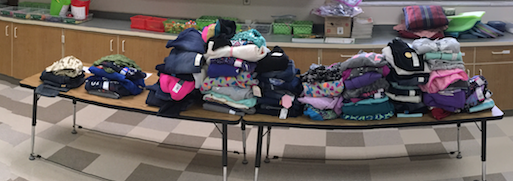
Definitions:
As young people build knowledge and passion for taking action, they can look up vocabulary and read more about the issues and needs. Here are some of the relevant vocabulary words.
- living wage
- homelessness
- poverty
- affordable
- mutual aid vs charity
Key Questions for Learning and Service:
These key questions may guide investigation or generate inquiry about other areas of interest. The best service-learning experiences follow the passions of youth and local concerns. Here are some sample questions:
- Where in your community have you noticed that people are experiencing poverty or homelessness?
- What are some resources or privileges you have or don't have that make it easier to live above the poverty line?
- What community resources, such as a thrift store or food pantry, are available to support people to meet basic needs? How do these resources help the community as a whole?
Background Information
Share these background resources to inspire and inform youth about poverty issues and actions.
- Read about and contact a local Youth Drop-In Center to learn more about the resource. This guide introduces the work of the nonprofit and guides youth to visit a local center.
- Housing and Urban Development Exchange (HUD)
The link above has many resources that can help those that are in poverty, the hungry, the homeless population, or those that are trying to alleviate those issues.
- National Coalition for the Homeless
This informative website delves into causes, types, demographics, geography and resources on homelessness and related issues. They also have campaigns in which educators and youth can get involved.
- “Another Day in Paradise” by Phil Collins is a song with lyrics that illustrate the social problem of homelessness.
- Skate for Change (TEDxOmaha) This video by Mike Smith discusses how he helps the homeless community and shares his story on why/how helping the homeless population is so essential.
- Invisible People YouTube channel provides videos about the systemic issues that contribute to homelessness.
- Learning to Give's white paper about the Southern Poverty Law Center, an organization that is committed to fighting poverty
- Coalition on Human Needs article How Low Wages Hurt Families and Perpetrate Poverty describes the correlation between low wages and poverty.
- Mutual Aid May be Last Year's Most Enduring Legacy: How mutual aid efforts help combat food insecurity with collaboration and respect rather than through charity organizations dictating agendas for others.
Lesson Plans
Break Bags mini-grant
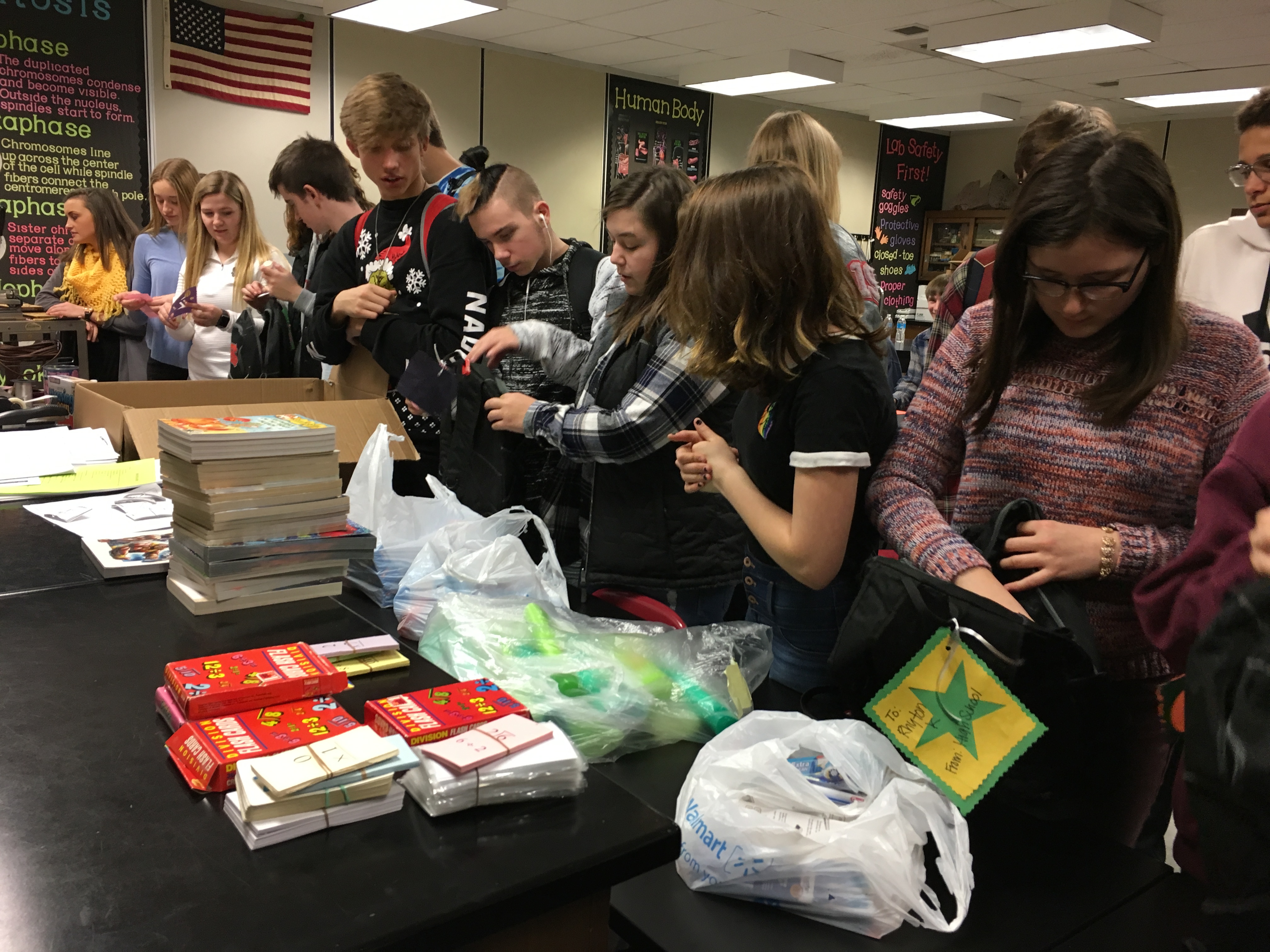
Learning to Give has hundreds of lesson plans to inspire and inform youth action. Search our full list of poverty-related lesson plans for topics that fit your interests and age of your kids. Narrow your search with keywords like justice, homelessness, nonprofit, or jobs. Here are some sample lesson plans:
- Homelessness: In this lesson, teens listen to a song and reflect with empathy and then write a poem entitled "I Am."
- What Is Hunger?: This lesson uses a graphic organizer and Internet research to define terms like food insecurity.
- Preconceptions: In this high school lesson, students examine their preconceptions about homelessness.
- Bedtime Bags: In this lesson, we learn about people who are homeless and make bedtime bags to donate.
Community Resources
For meaningful service-learning projects with long-lasting impact, connect youth to people and nonprofit organizations and natural resources in the local community related to their area of interest. This is an opportunity for a field trip (may be virtual) or for an expert to teach about issues and what is already being done. Youth may write, call, or interview experts about needs and partnerships.
- Homeless shelters
- Youth Drop-In Center
- Ask youth if they have family members whose work is related to poverty or homelessness
- Food pantries
- Soup Kitchens
- Local churches
- Habitat for Humanity
- Housing organizations or developments
- Goodwill Industries International
- The Salvation Army
- Nonprofit organizations that focus on these issues
Project Ideas
There are four types of service. The ideas below are grouped by these types. The best service-learning experiences follow the passions of youth and local concerns. These are provided to start conversations and ideas.

This overview Guide for Planning Service-Learning describes each step of the process and actions to take.
This blank chart for Planning Service-Learning helps youth prepare for who does what for maximum service and learning impact
direct2.png
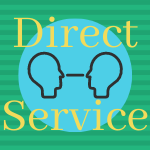
- Help build a home in your community by working with Habitat for Humanity. Students could also research the organization and how the programs work.
- Hold a community closet-cleaning day and encourage a large group of people to donate old clothes, furniture and other items to a local collection agency or homeless shelter. Contact organizations before the event to find out what is needed. Publicize these needs and assist people with moving and transport.
indirect.png
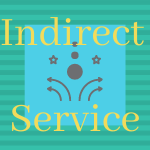
- Organize an event to give gifts to a group of people who utilize a shelter or food pantry. For example, collect donations of personal items for women. Fill shoeboxes for individuals with items like moisturizer, make-up, shampoo, toothpaste, treats, deodorant, and razors. Wrap the items for the holiday and give away the boxes on a given day.
- Plan and plant a community garden in order to donate vegetables to a local school, soup kitchen or food pantry.
advocacy.png

- Create handouts or PSAs on community resources and information about the causes and effects of poverty.
- Write letters advocating for increased government resources to combat homelessness and hunger issues.
- Write an ABCs of Advocacy book to teach about speaking up for people.
- Hold a community information night to inform community members about organizations that work to alleviate homelessness and poverty in your community.
research.png

- Investigate the factors that influence poverty in your community
- Compare and contrast your town to other regions of the country and the world.
- Research the intersectionality within the issues of homelessness and poverty. What other issues do these individuals face beyond just financial and housing struggles?
- Research the anti-homeless laws that states have in action and develop alternatives to these laws.
Literature Guides
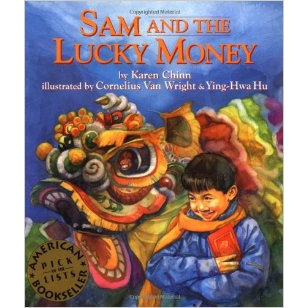
In Sam and the Lucky Money, we all recognize the joy of Sam who has money to spend any way he chooses adn the difficult decision as he browses the toy store and the bakery. But Sam surprises us all by giving his money to a stranger who doesn’t have any shoes. This book will spark a discussion about feeling lucky with what we have and helping others in creative and small ways. Note that Sam made the decision himself, and the freedom to choose made his decision much more meaningful.
ThroughCracks.jpg
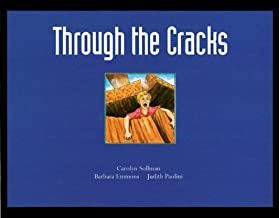
The literature guide for Through the Cracks provides before, during, and after-reading discussion questions. Choose from activities and discussion questions to build youth's understanding of their potential impact on community, as well as, exploring the idea of taking action to find one's own voice and purpose in life.
WeAreNotEqual.jpg
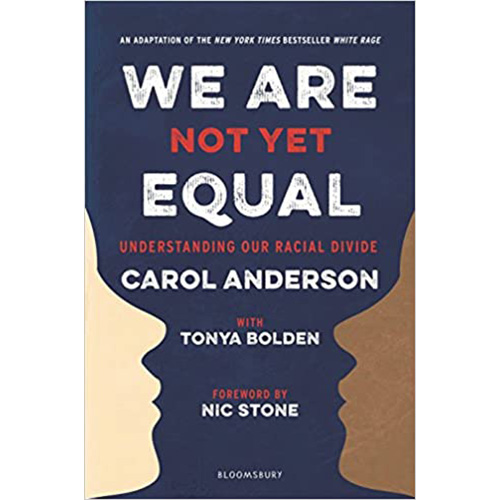
The book We Are Not Yet Equal is an adaptation for young people of the New York Times Bestselling book, White Rage. This book received several accolades including an NAACP Image Award finalist book and a NYPL Best Book for Teens. It helps build understanding of the story of civil rights and race relations and what it means in the current world they are living.
Quotes
Ways to use quotes with youth: Use it to spark conversation. Write about its meaning or do research on the person or topic. Represent the quote visually and display in social media. Tell whether you agree or disagree with the quote. Rewrite it to speak for you.
“We think sometimes that poverty is only being hungry, naked and homeless. The poverty of being unwanted, unloved and uncared for is the greatest poverty. We must start in our own homes to remedy this kind of poverty.” — Mother Teresa
“People…were poor not because they were stupid or lazy. They worked all day long, doing complex physical tasks. They were poor because the financial institution in the country did not help them widen their economic base.” — Muhammad Yunus, Author
“Overcoming poverty is not a gesture of charity. It is an act of justice. It is the protection of a fundamental human right, the right to dignity and a decent life.” — Nelson Mandela
“Just because a child’s parents are poor or uneducated is no reason to deprive the child of basic human rights to health care, education and proper nutrition.” — Marian Wright Edelman
“If poverty is a disease that infects the entire community in the form of unemployment and violence, failing schools and broken homes, then we can’t just treat those symptoms in isolation. We have to heal that entire community.” — President Barack Obama











